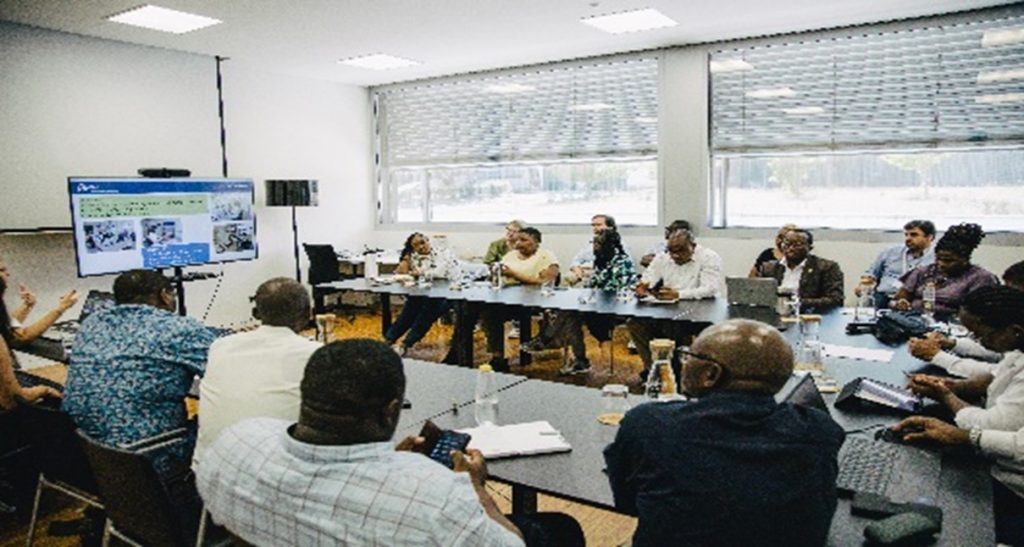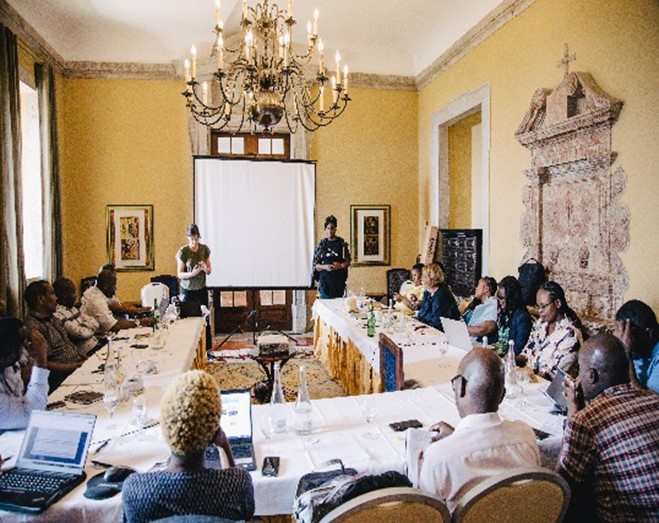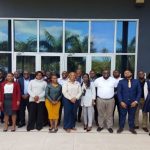ESAWAS in collaboration with the Lisbon International Centre of Water (LIS-Water) organized a regulatory exchange visit to Portugal for its members from 17th to 21st July 2023. This was in pursuit of the primary objective of ESAWAS to enhance the regulatory capacity of its members to deliver quality and effective regulation to achieve public policy objectives.
The visit, with the motto: “get to know, brainstorm, exchange and inspire”, included interactions with the Portugal Regulator-ERSAR and a number of Utilities.
To pave the way, Mr Jaime Baptista, the President of LIS-Water presented the history of water and sanitation sector in Portugal, the role of regulation in sector reform and performance to-date. Discussions evolved around institutional set up of the sector, the legal framework, regulatory governance, regulatory models among other aspects.
Ms Rita Amaral, the CEO of LIS-Water presented regulation of asset management as a regulatory approach to improve the performance of utilities. Navigating through different models employed by the regulator, it was observed that the utilities can be advised on the status of their water infrastructure in terms of functionality, aging and the level of investment required and by when to keep the infrastructure functioning sustainably.
The visited institutions included:
EPAL, the state-owned company responsible for water supply in the City of Lisbon and 12 surrounding municipalities under delegation contract. The company shared its practical experience in asset management, financing planning covering management models in place (direct management, concessions and delegation) tariff structure (regular tariff and special tariffs: social and family tariffs) and water quality control.
ERSAR, the Regulator of water and sanitation services in Portugal. At ERSAR, discussions covered different aspects including: regulated services (bulk water and retail water supply, sanitation and waste management); regulated service providers (state-owned utilities, municipal-owned companies and municipalities); economic regulation, legal, quality of services and consumer complaints regulation as well as the regulatory information system for data submission by utilities, data validation, analysis and annual sector reporting.
Aguas do Tejo Atlantico, member of Groupo Agua de Portugal – A public company providing wastewater treatment services to 23 municipalities of Portugal under a concession contract. Apart from wastewater treatment, reuse and sludge management by Aguas do Tejo Atlantico, delegates learned about different initiatives within the Portugal Water Group such as the “Energy efficiency and neutral carbon project” aiming at reducing the energy consumption and increasing the use of renewable energy produced by companies themselves and “climate adaptation and resilience project”. Practical insights on utilities aggregation, Public-Private Partnerships, performance-based contract and performance incentive systems were provided.
SMAS de Sintra, a municipal-owned utility providing water supply, sanitation, storm water and waste management services in Sintra municipality. Practical experience were shared on efficient strategy for Non-Revenue Water (NRW) and undue inflow management which led to the reduction of NRW from 31% (2014) to 18% (2022); information system comprising of different interconnected application systems used for a number of organization processes and operations such as planning, water loss management, water balance and performance indicators, remote field operations management, meter reading, billing and collections, customer support and remote solutions and infrastructure management and others. Planning, management and maintenance of stormwater drainage as well as funding models of stormwater services were also discussed.

The last day of the learning visit was dedicated to a retreat of delegates to deliberate on lessons learnt from the visit, which included:
- Regulator’s credibility and legitimacy – strong leadership and transparency drive the positive responsiveness of regulated service providers
- Aggregation of utilities – clustering small and rural service providers for effective oversight by the regulator but also improved performance (economies of scale)
- Data and integrated information systems – are critical for both regulators and utilities to improve on their operations and performance
- Strategies for NRW reduction – regulation of asset management, performance-based contract, delegation of services
- Information sharing – on what should be complied with and good practices to learn from and adopt
- Effective engagement – of regulators with policy makers, regulated entities, consumers and other authorities to enhance the performance of the sector
- Regional or continental incentives – for utilities performance, example of EU strongly supporting the sector with funding.
The regulatory exchange visit, led by ESAWAS Secretariat was attended by 17 participants from 11 countries, members of the ESAWAS Regulators Association and a representative from WHO-RegNet. It was co-facilitated by LIS-Water which is an international centre that promotes integrated approach for water governance through public policy, regulation and water management services.
LIS-Water is also spearheading the formation of a Global Coalition of Regulation which is a collaborative initiative bringing together governments, regulators and authorities with regulatory and oversight functions, international organizations and experts for cooperation and joint action.
ESAWAS has ongoing initiatives that facilitate regulatory capacity development through regulatory cooperation, training, peer exchanges and reviews, mentorship building and information sharing among members and with like-minded institutions within the water and sanitation sector globally.






